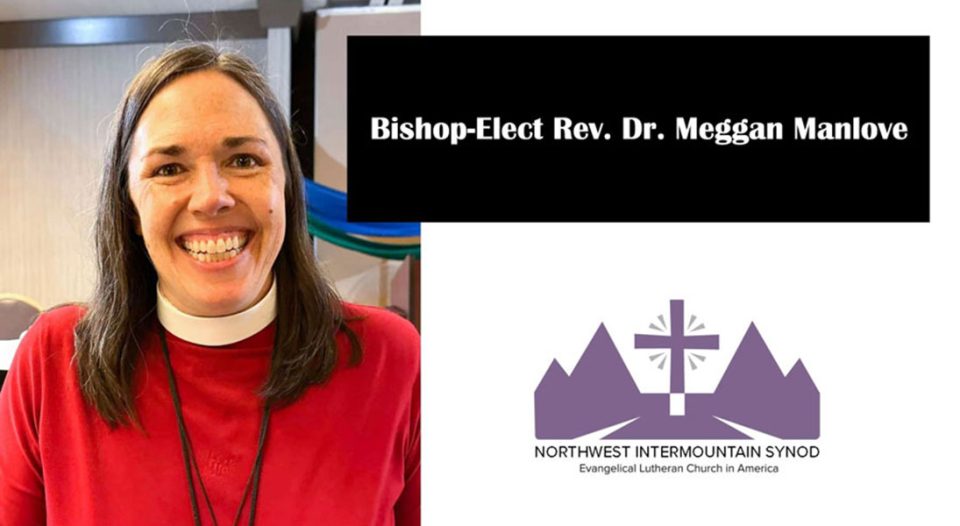Growing up in the Black Hills of South Dakota, Meggan Manlove developed a strong interest in movies. Her mother loved films, and when Manlove was earning her Master of Divinity at the University of Chicago in the early aughts, she took advantage of the school’s legendary Doc Films repertory series to explore different kinds of cinema.
“It was such a great escape to go watch these stories that had nothing to do with what I was learning in the classroom,” she remembered. “And yet they did! Because they were about humans living and making their way in the world.” When Manlove served as pastor of Soldier (Iowa) Lutheran Church from 2004 to 2010, she would spend her Friday evenings socializing with fellow pastors in Sioux City and often wound up in a movie theater. “I just found it was a great way to, at the one time, disengage and get a break but also just to go into another story,” she said.
Manlove’s own story as bishop of the Northwest Intermountain Synod will begin July 1. As she looked ahead to her new role, she cited post-pandemic communication as the biggest internal challenge for a synod that stretches across half of Washington state, includes all of Idaho and reaches into Wyoming.
“Getting our rostered [ministers] and our lay leaders connected to one another and helping them find new ways to meet their neighbors is gonna be really important,” she said. “We’re not gonna maybe meet in person as a whole assembly for quite a while, because of cost and distance and everything.” The synod’s vitality, she thought, depended on “finding creative ways to use our outdoor ministry sites or other places to connect in person and then to use video conferencing really well for connection, and phone calls and me being on the road visiting people.”
“We don’t have to do [hunger] work alone as congregations. There’s a lot of other people who care about hunger issues that we can partner with”
In 2010, after finishing her call in Iowa, Manlove became pastor of Trinity Lutheran Church in Nampa, Idaho, where she pursued ministry in the interconnected problems of hunger and housing. She plans to retain her position on the board of LEAP Housing, a Boise-based, statewide nonprofit that develops and preserves affordable housing, and she relishes the opportunities her new role might bring to this mission.
Asked how she might approach hunger issues across the synod, Manlove was cautious, pointing out that the problem can vary by locality: “We’re such a big region that it looks different all over our synod. It looks different in Jackson, Wyoming, than it does in Potlatch, than it does in Chelan, Washington.” People in rural areas, she explained, face different obstacles than those living in the urban food deserts now afflicting the synod’s urban centers: Boise, Idaho; Spokane, Wash.; and the Washington Tri Cities.
Even with that caveat, Manlove was intrigued by the possibility of using the church’s resources to support community farming and grateful for the financial resource of ELCA World Hunger’s Domestic Hunger Grants, which encourage local experimentation. “We don’t have to do that work alone as congregations,” she said. “There’s a lot of other people who care about hunger issues that we can partner with. And we can bring the language of faith to those conversations. That’s a really important, helpful thing, because not every faith community does talk about hunger the way we do.”
Beginning in July, Manlove will get the chance to bring that talk to a much broader audience. Her installation will take place Oct. 7 at Cathedral of the Rockies, Boise First United Methodist Church.






